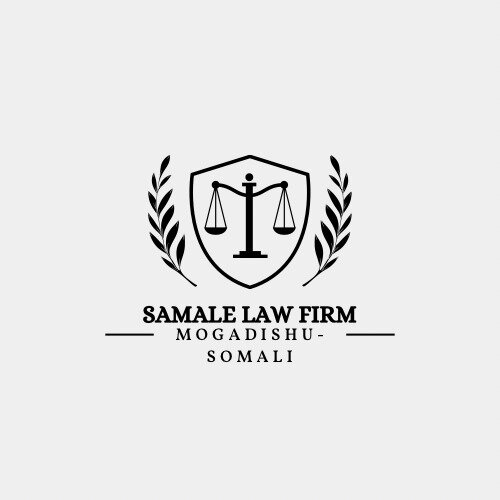Best Real Estate Lawyers in Somalia
Share your needs with us, get contacted by law firms.
Free. Takes 2 min.
Free Guide to Hiring a Real Estate Lawyer
Or refine your search by selecting a city:
List of the best lawyers in Somalia
About Real Estate Law in Somalia
Real estate in Somalia is an evolving sector, reflecting the country's gradual recovery and development. Historically marked by a lack of infrastructure and legal oversight due to decades of conflict, the real estate market is now experiencing growth. With increased stability, urban areas such as Mogadishu are seeing a rise in real estate transactions. However, this sector is challenged by issues such as unclear property titles and overlapping claims stemming from the country's complex land tenure systems.
Why You May Need a Lawyer
Engaging a lawyer in the realm of real estate in Somalia is crucial given the intricate nature of property rights and the evolving legal landscape. Here are common scenarios where legal assistance may be necessary:
- Disputes over property ownership.
- Conducting due diligence for property purchases to ensure clear titles and avoid fraud.
- Lease agreements, especially in commercial real estate, where terms may be complicated.
- Resolving inheritance-related property issues due to the intertwining of customary, Islamic, and statutory laws.
- Development and construction projects requiring compliance with local regulations and zoning laws.
Local Laws Overview
In Somalia, real estate laws are shaped by a mix of customary laws, Islamic principles, and statutory laws. Key aspects include:
- Property Rights: Somali customary land ownership is community-based, which can lead to conflicts. Recognition of individual ownership is still developing.
- Land Registration: Official land registration is limited and often hindered by inadequate administrative capacities. Proof of ownership often relies on community recognition and traditional agreements.
- Islamic Influence: Islamic law plays a significant role, especially in inheritance matters, where property is divided among heirs per Sharia principles.
- Governmental Role: The Ministry of Public Works, Reconstruction, and Housing oversees regulations related to urban planning and property development.
Frequently Asked Questions
What is the process for buying property in Somalia?
The process usually involves verifying ownership through community verification, negotiating with the seller, and sometimes securing agreements via legal channels if available.
How can one resolve property disputes in Somalia?
Resolving disputes often involves mediation by community elders, Islamic courts, or legal representation if statutory courts are accessible.
Are there any restrictions on foreign ownership of land?
Foreign ownership of land is generally restricted, with leases being a more common option for foreign entities.
How does inheritance of property work under Somali law?
Inheritance matters are typically governed by Sharia law, which dictates specific shares of the property to surviving family members.
What role do local customary laws play in real estate transactions?
Local customary laws significantly influence transactions, especially in rural areas, where community consent is crucial for land agreements.
Is there a formal land registration system in place?
A formal system exists but is limited and often inaccessible. Many transactions rely on informal recognition.
Can I develop an agricultural project on a piece of land I acquire?
It depends on the community's agreement and any governmental regulations that may apply, especially in urban areas.
What are the potential risks of buying property in Somalia?
Risks include unclear ownership, fraudulent claims, and lack of comprehensive legal infrastructure to enforce contracts.
How are taxes on real estate handled?
Real estate tax systems are underdeveloped, with most transactions negotiated at community levels, though this may vary in urban areas.
Who manages land use and urban planning?
The Ministry of Public Works, Reconstruction, and Housing is primarily responsible for managing urban planning and land use regulations.
Additional Resources
For those seeking more information or assistance, the following resources may be helpful:
- Ministry of Public Works, Reconstruction, and Housing
- Somali Law Society
- Local community elders and leaders for mediation services
- International organizations such as the UN Habitat for development aid
Next Steps
If you need legal assistance in real estate matters, consider the following steps:
- Contact a local lawyer with expertise in Somali real estate law.
- Engage with community elders for issues involving customary laws.
- Reach out to governmental bodies for urban planning and land development questions.
- Seek guidance from international organizations for property-related projects.
Taking proactive steps to understand and navigate the complex legal landscape is crucial in securing and protecting property rights in Somalia.
Lawzana helps you find the best lawyers and law firms in Somalia through a curated and pre-screened list of qualified legal professionals. Our platform offers rankings and detailed profiles of attorneys and law firms, allowing you to compare based on practice areas, including Real Estate, experience, and client feedback.
Each profile includes a description of the firm's areas of practice, client reviews, team members and partners, year of establishment, spoken languages, office locations, contact information, social media presence, and any published articles or resources. Most firms on our platform speak English and are experienced in both local and international legal matters.
Get a quote from top-rated law firms in Somalia — quickly, securely, and without unnecessary hassle.
Disclaimer:
The information provided on this page is for general informational purposes only and does not constitute legal advice. While we strive to ensure the accuracy and relevance of the content, legal information may change over time, and interpretations of the law can vary. You should always consult with a qualified legal professional for advice specific to your situation.
We disclaim all liability for actions taken or not taken based on the content of this page. If you believe any information is incorrect or outdated, please contact us, and we will review and update it where appropriate.
Browse real estate law firms by service in Somalia
Somalia Attorneys in related practice areas.
Browse real estate law firms by city in Somalia
Refine your search by selecting a city.









